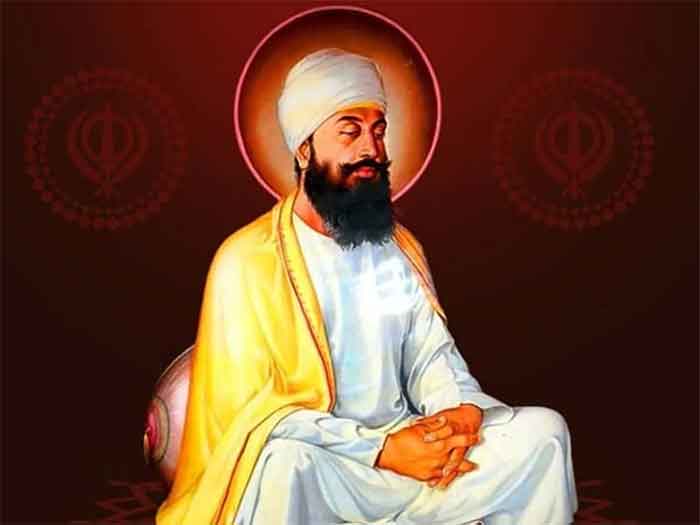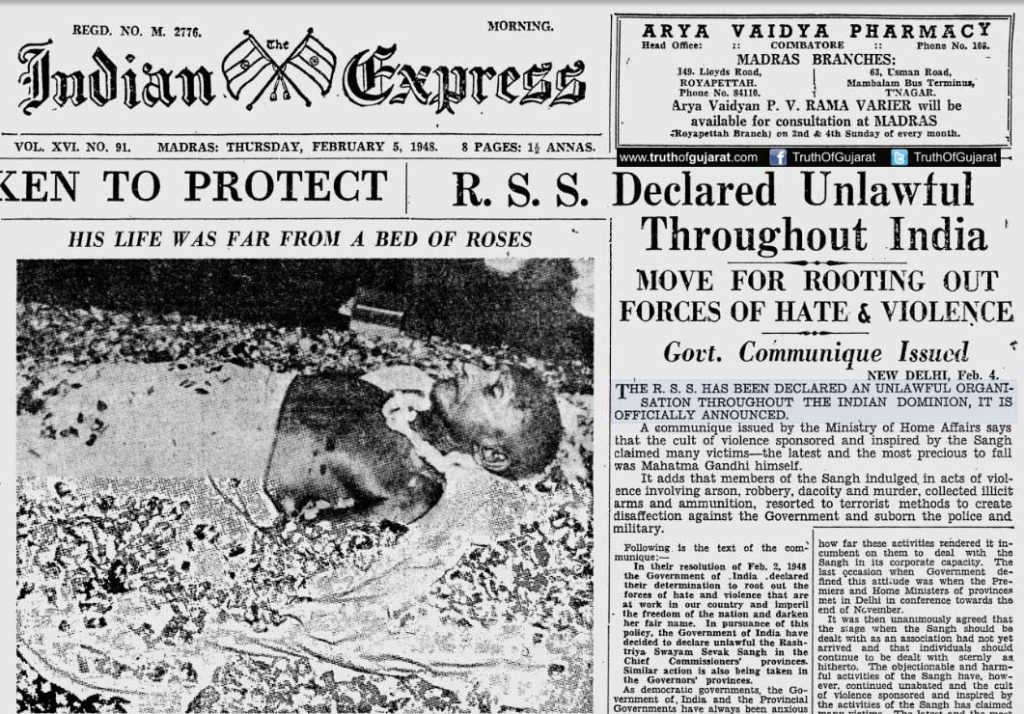
This first May (2021), was also the day of 400th Anniversary of birth of the Ninth Sikh Guru Tegh Bahadurji. Guruji has a very important place in the consolidation of Sikhism; he was also the one who sacrificed his life for the sake of principles. As such Sikhism, the religion founded by Sant Shri Guru Nanak Dev ji has been a major religion which has developed in the subcontinent. When the orthodoxy of Muslim maulnas and the Hindu priests was stifling the humane aspects of religion, Nanak founded this religion, which was based on humanism and equality. Rather than having a confrontationist attitude to Islam or Hinduism, he was inspired and highlighted the values of equality in particular.
He appreciated the monotheism from Islam and theory of Karma from Hinduism. He travelled to Mecca to understand the intricacies of Islam and went to Kashi to internalize the subtlety of Hinduism. The result was that the religion he founded had massive appeal to vast masses that flocked to him for spiritual and moral enhancement.
He underlined the teachings of Muslim Sufis particularly Sheikh Farid and Hindu Bhakti Saint Sant Kabir and their likes. More than rituals he focused on the interpersonal amity and opposed the rigidities imposed by the clergy of both religions. To break the untouchability and the hierarchy inherent in the social system, the Sikh tradition introduced langar (community meals), one of the most beautiful contributions of Sikhism in a multi religious society. Even today when any community is faced with problem of food supply members from this community are forthcoming in organizing langers. The one’s organized for Rohingiyas, and one organized for farmers agitating for their rights have been were very touching. Lately in the times of Corona the unique concept of ‘Oxygen Langar’ is a remarkable contribution from this community.
Sikhism has a unique and distinct theology and practices. The Holy book of Sikhs is a great contribution to our society as apart from the writings of Gurus themselves, it incorporates the writings of Bhakti and Sufi saints. The core aspect of the religion is morality and love for the community, overcoming the caste and religion’s boundaries. Remarkably the foundation of Golden temple (Amritsar) was laid by a Sufi saint Miyan Mir, an indication of respecting for values rather than divisive narrow boundaries. It is due to this that Sant Guru Nanak himself proclaimed, Na main Hindu; Na main Muslaman. (I am neither a Hindu nor a Muslim), these were two major religions in the area.
Today there are claims that Sikhism is a wing of Hinduism to protect it from the cruel Muslim rulers. It is claimed that this tradition was mainly there to challenge the Mughals. There is no doubt that some Sikh Gurus faced cruelty from Mughal rulers, particularly Aurangzeb, but that is part of the story. In totality Sikhism did begin as an egalitarian religion and later the Sikh community did organize itself as a center of power. Many of these conflicts for power are presented as struggles of Sikhism and Islam, which is not true.
Akbar in particular had good relations with Gurus who succeeded Nanak. Later Jahangir and Guru Arjun had a conflict as Guru Arjan had blessed the rebel prince Khusrau. Some insignificant incidents like emperor’s favorite hawk flying in to Guru’s camp when the emperor was on a hunting expedition also acted as irritants. Interestingly in one of the small scuffles between emperor and Sikh Guru, Sikh forces were led by Painda Khan, a Pathan. On the question of power Sikh Gurus also had conflicts with the Hindu Rajas of Hills, particularly the Raja of Bilaspur. The Rajas were uncomfortable with the rise of Sikh power.
There are records that Aurangzeb’s relationship with Sikh gurus was not linear. He gave grant to Guru Har Rai’s younger son Ram Kishan, in the form of land in Dehradun. Selective incidents from Aurangzeb and Sikh Gurus are being generalized to present as if all Mughal Kings were against Sikhs.
It is propagated that Hindus were being oppressed by Mughal Governor of Kashmir. Iftekhar Khan held that post from 1671. His predecessor Saif Khan had a Hindu as his advisor. About Iftekhar Khan, who was anti Shia; even the history of Kashmir written by Narayan Kaul in 1710 does not mention persecution of Hindus. It is true that execution of Guru Tagh Bahadur by Aurangzeb was cruel and uncalled for. It is this act which led to founding of Khalsa by Guru Govind Singh. That, religion was not the central motive of most battles also becomes clear from the fact that the combined force of many of the hill Rajas attacked Guru at Anandpur.
Later when Aurangzeb was in Deccan, he wrote to Governor of Lahore to conciliate with Guru Govind Singh. After the Guru wrote to Aurangzeb, he invited Guru to Deccan to meet him. Guru did start his journey to Deccan but on way came to know of the death of Aurangzeb. Sikhism is a great example of an egalitarian religious movement turned into a political, militaristic movement and which moved towards independence.
Sikhism is the best example of popular subaltern egalitarian aspirations which the Sikh Gurus kindled. It brought in the values of equality and overcame the social hegemony of clerical elements and traditions which were harping on domination in the garb of religion. It transcended the narrow boundaries to bring in Humanism, upholding the best aspects of prevalent religions around.
The propaganda that Aurangzeb wanted to convert the country into Darul Islam, does not seem to be logical. In the systematic study of composition of his Court shows that the number of Hindu officials in his Court rose to nearly 33%, more than even the previous rulers. With Rajputs he had cordial relations as Raja Jai Singh and Jaswant Singh were his trusted officers. Same way he had to spend lots of energy fighting against Afghan Tribesmen. Guru Tegh bahadur and other Sikh Gurus who emphasized humane values deserve our highest respect.
GET COUNTERCURRENTS DAILY NEWSLETTER STRAIGHT TO YOUR INBOX















































